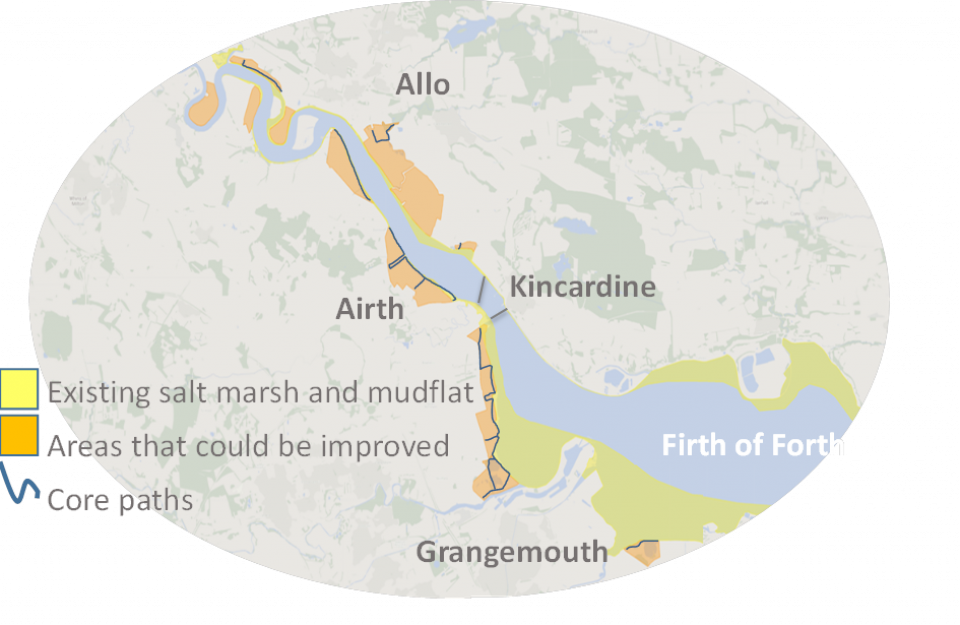
Scotland is an environmentally diverse country, facing many of the challenges encountered across Europe within one relatively small country. There is considerable political will to improve management of Scotland's environment, and ecosystem and natural capital concepts are central to the ecosystem approach that underpins its national Land Use Strategy, Biodiversity Strategy, and Marine Plan and associated regional and sectoral plans. These policies have ambitious objectives, which require appropriate national ecosystem services assessments, but also place considerable challenges on regional strategic planning and local management.
This exemplar aims to: Map and describe existing and potential use and non-use community-held values of the estuary; Elicit community-held preferences and willingness to pay for coastal land use and management on landscape-scale; Test impacts of deliberation on preferences for estuarine land in a workshop setting; Contextualise study findings through institutional analysis; Identify ecosystem values held by land-owners and their attitudes towards coastal realignment; Understand future visions for the estuaries from diverse stakeholders; Test operational potential and impact of valuation outcomes in the local policy context
- ESCom has an inclusive and open community, with a wide constituency. Stakeholders that have actively engaged and contributed include: Scottish Natural Heritage, The Scottish Government, Scottish Wildlife Trust, SEPA, The James Hutton Institute, SRUC, Forest Research, CEH, Scottish Forum on Natural Capital and Scottish Environment Link.
- ESCom now coordinates a regular series of events, including workshops, seminars, annual conferences, and field trips which attract a diverse audience. The ESCom website (www.escom.scot) features regular blogs and news items contributed by members from across science policy and practice, and ESCom has an established substantial twitter following.
Lessons learned in establishing ESCom Scotland will be relevant for new ecosystem services communities of practice.
To engage with a diverse audience requires a variety of regular activities to sustain interest and tasks should be shared across the community.~Maintaining the network requires some dedicated time from a dedicated Network Manager~
